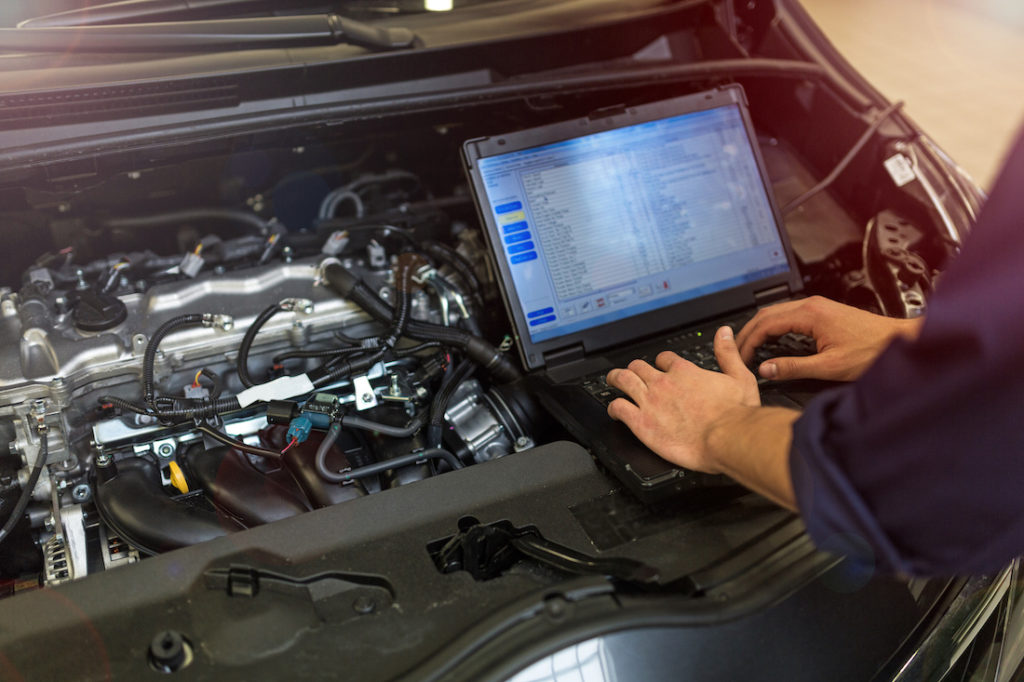Being a mechanic is tough work—especially nowadays. Modern mechanics, now called automotive technicians, must know more than ever before. Techs must be able to troubleshoot the complex electronics found in today’s cars, while also doing traditional, back-breaking mechanical repairs.
That’s a lot to ask when, on average, technicians make just $41,097 a year. And, oh yeah, techs are required to provide their own tools, which cost tens of thousands of dollars, as well.
So, it comes as no surprise that there’s a nationwide shortage of mechanics. Each year, the automotive industry needs to add approximately 76,000 automotive technicians. Around 46,000 of those individuals are required to keep up with growing demand. The other 30,000 are needed to fill slots vacated by employees who quit or retire.
Trade schools are only turning out 37,000 new technicians each year. The math is pretty simple, then. America has an annual shortage of around 39,000 techs. If America doesn’t address the shortage, keeping cars on the road is going to get harder and harder. And more and more people will have to miss work, school, and their family obligations while their car sits awaiting repairs.
Additional Reasons Automotive Technicians are Disappearing
A less-than-impressive average salary and expensive tools aren’t the only factors contributing to the technician shortage. Unwelcome stigma, an absurd flat-rate pay system, and the complexity of modern cars are all contributing factors.
Flat-Rate Pay
One of the major problems is that techs work under a flat-rate pay system. With flat-rate, instead of getting paid per hour, techs are paid for each job they complete. How much each task provides depends on the “labor time” (a.k.a. “book time”) listed in a standardized labor guide. The guide, however, doesn’t account for unforeseen issues, such as seized parts, that can make a job more time-consuming. And that’s a problem.
Flat-rate is also risky for techs because if there’s no work, they go home with little to no pay. Furthermore, technicians who work at dealerships only get paid a fraction of the “book time” for warranty repairs. Side work, such as mentoring newcomers, often goes unpaid as well.


Stigma
The stigma attached to automotive repair work is another problem. Society often views mechanics as “grease monkeys”—a stereotype that couldn’t be further from the truth when there’s more computing power in a new car than there was at NASA when they put a man on the moon. Schools reinforce the stigma. As working on cars is often considered low-class, career counselors push young people towards more “prestigious” white-collar jobs that may be less satisfying or even pay less. As a result, fewer and fewer high school graduates want to become a technician, and those who do are pushed away from it.
Complex Modern Cars
Cars are becoming impossibly difficult to work on. Today’s automotive technicians need to know how to diagnose complex computer networks and interpret textbook-sized wiring diagrams. It’s illogical to expect someone with the ability to handle such work to accept a job paying $40,000 a year. Their skills are in too high demand, and they could likely make more money elsewhere.
Modern cars are turning away older technicians as well. Some techs would rather retire than master a completely different set of skills near the end of their careers.
What the Technician Shortage Means for You
A lack of qualified technicians isn’t just a problem for industry insiders—it’s a concern for consumers as well. If the shortage continues, vehicle owners may eventually have a hard time finding someone to fix their car. Drivers could be left without transportation while waiting in queue for a technician.
But there’s currently a more immediate problem at hand: Because of the technician shortage, some repair facilities are less selective about who they hire. While, in the past, most shops only hired highly-skilled individuals, many will take far less-experienced workers nowadays. Nearly anyone with a set of tools and an interest in cars can make it to the frontline.
That’s not to say there aren’t talented automotive technicians. On the contrary: there are countless bright minds still working in shops across the country. But there’s no guarantee you’re getting a talented mechanic at any given shop.
As such, consumers should be more careful of who they let work on their car. Do your homework and make sure your car gets serviced by an industry-trained professional. After all, you don’t want just anyone poking around under the hood.
Any information provided on this Website is for informational purposes only and is not intended to replace consultation with a professional mechanic. The accuracy and timeliness of the information may change from the time of publication.


















I started at Galpin Ford in 1988. started at $17.75 an hour working heavy line. moved away, got married in 1989. worked ar Vista Ford, Fremont Ford, San Francisco Ford, Hayward Ford. then got divorced in 2008. I figured I return to Galpin Ford. gave then a call, they offered me $18.00 /hour. I told them that’s what I made in 1988 and I was now a senior master technician and Diesel certified and they said wow you can make probably $20 an hour! No thanks. This is why we have lack of mechanics.
Maybe I have a warped sense of humor, but I can’t help but laugh at the situation the car dealers have got themselves in. My grandpa repaired cars from the day he got home from WWII until he was 80 years old. My dad was a Independent mechanic for forty plus years. Made a good living for his family. He will be retiring in the next year or so. It will leave my hometown and the tri county area without someone who can repair cars. Notice I said repair and not work on. Most of his friends quit their dealer jobs 10 years ago for all the reasons already mentioned. The mechanic and machining skills I learned in his shop as a teen are priceless. All other work is childs play compared to fixing modern cars. Appliances, computers, electronics, wiring, power sports, construction equipment are all a breeze if you can fix modern cars. Financially independent at age 41 and getting ready to build my first airplane. Those skills are the number one reasons I am in the position I am in today. Far more valuable the my Doctorate. I wouldn’t let the dopers at the dealership work on my lawnmower. The general public has it so bad. My dad tells me half his work is from botch dealership repairs anymore. I picked up a new KTM 65 sx for my oldest the other day. Couldn’t stop laughing when their master mechanic started telling me how how I will need to bring it in every 10 or 15 hours to have the valves adjusted. Oh yeah, and the other carb jets are for when the originals wear out. However, I take issue with everyone’s advice to stay away from this industry. There is so much demand everywhere I go. I could open my own shop tomorrow and work 24/7 if I wanted. Could probably charge whatever rates I wanted if I took credit cards. There are 10 real estate agents for every house for sale in my town, but you will wait 2 weeks plus and pay nearly 200 dollars an hour to get a car worked on. Even then it may not be fixed. The nation is in a dark place. It really is sad.
A few more honest articles, like this one, about this full time hobby they try to call a career would be greatly appreciated. I cant wait until all you have are the drop outs and losers left because everyone with a brain left the field, oh wait looks pretty damn close to that time right now.
Nearly anyone who is still in this field has a significant other who makes good money that can float their whole family. It’s really sad when this industry works off of people with bad backgrounds because of the sub-par standards. What’s worse, talk to owners and they’ll tell you all the stories of techs making $70k/yr. in the 90’s, but then they turn around and tell their own techs they’re too expensive at $25/hr. even with more education and ability. It’s a sick industry that is truly broken and is a shining example of how America runs off of the backs of actual workers while convincing them they don’t deserve anything.
My husband is in his upper 30’s and he’s one of the bad background types. Again, thankful he has work, but there’s a fine line between benevolence and exploitation. He’s an ASE Master stuck doing the heavy-heavy stuff because the older guys say, “You’re young, you can do it,”while they hobble around with bad backs. My husband is on the tail end if middle age and is one of the youngest in his shop. There’s nobody coming up behind him. Not only dies he work for low dollars his body is getting destroyed in the process. The owners don’t want to invest in better equipment or anything that makes the job more efficient, apparently it’s the tech’s responsibility to invest to make more money for the owner. Also, specialization went the way of the dodo therefore nobody on flat rate can ever get to the efficiency required to make good money because you’re working on a different make or model from before the 80’s to current. That’s thousands of variations and a ton of them don’t even have sevice guides. Flat rate is a totally losing battle for the tech yet the owners love it because they don’t have to pay as much. Not to mention, the discounts the front end guys give because they can’t sell anything which takes money away from everybody.
Can you tell I’m mad too? I have a master’s degree and his tooling and education has been just as expensive over the years as my education, but with a much lower salary. If you can, get out and stay out. Convince any young person not to do it. Let the whole thing crash and burn.
shop rate here at Livermore Ford $186 / hour. They hire Stoned teenagers and pay them $14 an hour and the shop foreman runs around like a headless chicken trying to tell them what to do!